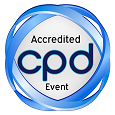
Sukdev Nayak
AIIMS, Bhubaneswar, India
Title: Integrative yoga therapy on cognitive function in elderly
Biography
Biography: Sukdev Nayak
Abstract
Elderly population in India is rising and is projected to further increase rapidly than many other developed countries in the coming decades. Dementia in elderly is emerging as a major public health problem due to increase in prevalence and lack of effective disease modifying treatment. As human being gets older, changes occur in all parts of the body including the brain. Alzheimer’s disease accounts for 60% to 70% of cases of dementia in the elderly. It is a chronic neurodegenerative disease that usually starts slowly and gets worse over time. Loss of short term memory is the first sign, following with language problems, decline in non-memory aspects of cognition, such as word finding, vision/spatial issues, and impaired reasoning or judgment, may signal gradual progress, ultimately leading to death. Although the speed of progression can vary, the average life expectancy following diagnosis is three to nine years. It starts in the mid 60 and is very common cause of death in elderly next to cancer and heart disease. The cause for most Alzheimer's cases is still mostly unknown except for 1% to 5% of cases where genetic differences have been identified. Performance measures of cognitively normal group steeply worsened with increasing complexity. With receiver operating characteristic curve analysis, patients with mild Alzheimer's disease were poorly differentiated from cognitively normal group according to their Tower of Hanoi performance. This is a progressive disease, which are the most common form of dementia and the sixth leading cause of death in the United States. While there is no cure for Alzheimer’s, research suggests yoga and meditation may play a role in the treatment. There are studies to suggest that memory loss may be reversed, yoga and meditation were included as part of a complex, 36-point therapeutic program. Moreover yoga and meditation may help Alzheimer’s and dementia patients and their caregivers socialize and feel better. Our experience: We tried yoga for 100 Alzheimer’s disease in our palliative care OPD. The control group was asked to watch spiritual discourses in TV and the test group was asked to practice simple yoga and pranayam procedures. The cognitive function was evaluated at 4, 6, 8, 12, 24 weeks. There was significant improvement in cognitive functions.

